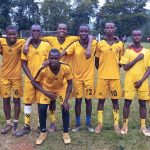The Kaptagat Conservation Integrated Programme has embarked on an ambitious journey to restore the degraded Kaptagat landscape ecosystem through innovative initiatives such as the Kaptagat Forest Marathon and Kaptagat Cycling Challenge.
Organized by Athletics Kenya, these events will feature various races, including 5 km, 10 km, and 21 km runs, alongside a cycling event.
They are part of a comprehensive five-year plan aimed at rejuvenating the forest and uplifting the livelihoods of local communities.
Scheduled for Saturday, July 13, 2024, the 8th edition of these flagship events will highlight the “One Km, One Acre, One Cow Initiative.”
This initiative aims to restore 480 hectares in Kessup, Sabor, and Kipkabus forests and plant 1,000,000 indigenous and 300,000 fruit tree seedlings sourced locally.
The Kaptagat Conservation Integrated Programme has been spearheading the annual Kaptagat Tree Growing Editions through which 2,225 hectares have been restored with the planting of 1,810,040 trees since inception in 2017.
National Treasury Principal Secretary Chris Kiptoo emphasized that the overall objective of the Annual Kaptagat Tree Planting Drive is to restore and champion sustainable management of the forest ecosystem for climate resilience and improved livelihoods.
He urged all stakeholders to participate, noting the initiative’s dual benefits for conservation and economic empowerment.
During the launch, it was announced that the Kelvin Kiptum Foundation will be unveiled to honour the late athlete and support the local athletics community.
Principal Secretary of Sports Peter Tum expressed his ministry’s full support for the integrated initiative, encouraging athletes from Iten and neighbouring areas to emulate Kiptum’s dedication.
Tum highlighted Iten as a high-altitude training ground, emphasizing the need to care for the environment to maximize the benefits of sports tourism.
Central to the initiative’s success is the “One Km, One Acre, One Cow Initiative,” ensuring sustainable management of the Kaptagat Forest Ecosystem.
The program aims to fence 273 kilometres of forest blocks, benefiting 28,000 households with high-yielding heifers, biogas units, pasture, cash crops, clean water, and solar lighting.
Additionally, it seeks to secure catchment areas on farmlands through carbon credit incentives.
The pilot of the Cow Hotel Model, a cooperative zero-grazing unit managed by groups of 25 households, will begin in Kessup, Kipkabus, and Kaptagat-Penon-Sabor.
This model aims to enhance milk production quality and fodder cultivation, achieving premium market prices.
Managed in collaboration with the Ministry of Environment, Climate Change, and Forestry, County Governments, and the Kenya Forest Service, the program integrates a multi-sectoral approach.
Local communities play a crucial role in day-to-day management, ensuring sustainability and community empowerment.
Emphasizing the integrated approach, WWF-Kenya CEO Mohamed Awer noted that stakeholders are addressing perennial issues affecting forests and neighbouring communities through effective fencing, water provision, and grazing plans.
“The Ksh 16 billion program is ambitious, and we are committed to collective engagement,” he affirmed.
The Kaptagat Conservation Integrated Programme invites all stakeholders to join in this noble endeavour.
Together, the stakeholders are confident they can restore and sustainably manage the Kaptagat Forest Ecosystem, securing a brighter future for both the environment and local communities.





